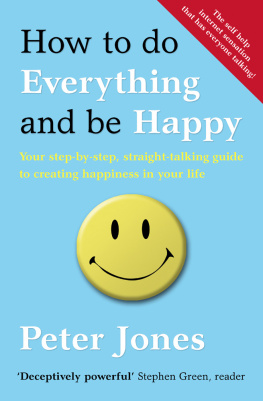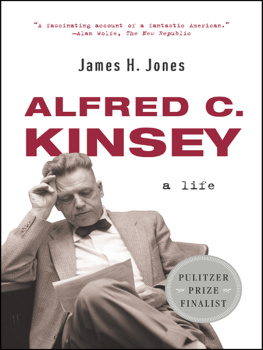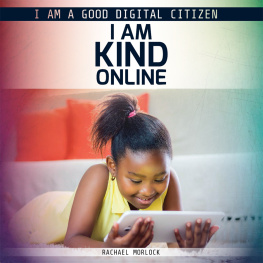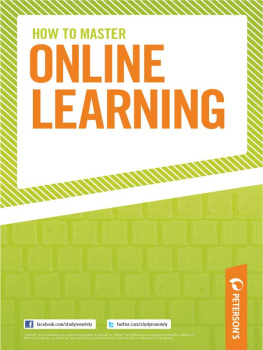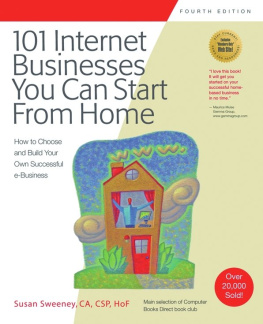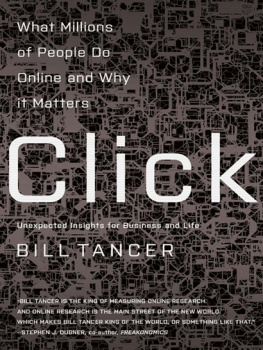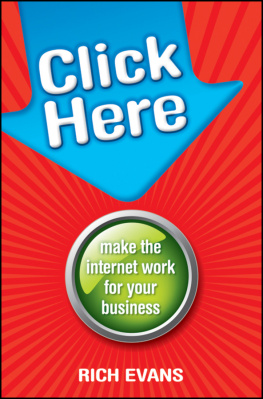Jones - Clickology
Here you can read online Jones - Clickology full text of the book (entire story) in english for free. Download pdf and epub, get meaning, cover and reviews about this ebook. City: Boston;MA Safari, year: 2014, publisher: Nicholas Brealey Publishing, genre: Romance novel. Description of the work, (preface) as well as reviews are available. Best literature library LitArk.com created for fans of good reading and offers a wide selection of genres:
Romance novel
Science fiction
Adventure
Detective
Science
History
Home and family
Prose
Art
Politics
Computer
Non-fiction
Religion
Business
Children
Humor
Choose a favorite category and find really read worthwhile books. Enjoy immersion in the world of imagination, feel the emotions of the characters or learn something new for yourself, make an fascinating discovery.

- Book:Clickology
- Author:
- Publisher:Nicholas Brealey Publishing
- Genre:
- Year:2014
- City:Boston;MA Safari
- Rating:4 / 5
- Favourites:Add to favourites
- Your mark:
- 80
- 1
- 2
- 3
- 4
- 5
Clickology: summary, description and annotation
We offer to read an annotation, description, summary or preface (depends on what the author of the book "Clickology" wrote himself). If you haven't found the necessary information about the book — write in the comments, we will try to find it.
Clickology — read online for free the complete book (whole text) full work
Below is the text of the book, divided by pages. System saving the place of the last page read, allows you to conveniently read the book "Clickology" online for free, without having to search again every time where you left off. Put a bookmark, and you can go to the page where you finished reading at any time.
Font size:
Interval:
Bookmark:
CLICK.OLOGY
What works in online shopping
and how your business can use
consumer psychology to succeed
GRAHAM JONES

First published by
Nicholas Brealey Publishing in 2014
35 Spafield Street | 20 Park Plaza |
Clerkenwell, London | Boston |
EC1R 4QB, UK | MA 02116, USA |
Tel: +44 (0)20 7239 0360 | Tel: (888) BREALEY |
Fax: +44 (0)20 7239 0370 | Fax: (617) 523 3708 |
www.nicholasbrealey.com
click.ology.biz
Graham Jones 2014
The right of Graham Jones to be identified as the author of this work has been asserted in accordance with the Copyright, Designs and Patents Act 1988.
ISBN: 978-1-85788-604-7
eISBN: 978-1-85788-930-7
British Library Cataloguing in Publication Data
A catalogue record for this book is available from the British Library.
All rights reserved. No part of this publication may be reproduced, stored in a retrieval system, or transmitted, in any form or by any means, electronic, mechanical, photocopying, recording and/or otherwise without the prior written permission of the publishers. This book may not be lent, resold, hired out or otherwise disposed of by way of trade in any form, binding or cover other than that in which it is published, without the prior consent of the publishers.
Printed in Finland by WS Bookwell.
Shopping online is a regular activity for millions of people around the world. In 2012, more than $1 trillion was spent on goods in online retail thats before you even consider the amount spent on booking travel tickets, or buying business services such as accountancy, legal advice, or consultancy. Around 10% of all worldwide shopping is online, with predictions that this will double by 2015. In fact, the global economy now depends on internet shopping of all kinds.
Until recently, the US dominated online retail, but gradually other parts of the world are catching the bug. In Europe, about 10% of all retail is online, and the UK tops the league table with 13%. Meanwhile, the Asia Pacific region has come to represent a third of all online buying. By 2016, it is predicted that 40% of online sales will be conducted there, with Europe representing only half that amount.
Yet in spite of or perhaps because of the billions of dollars, euros, yen, rubles, rupees, pesos, or pounds being spent online, the world of shopping is at a crossroads, with many traditional, established businesses discovering that what has worked for so long offline does not work online, and that what works online does not necessarily translate offline: that what they are doing simply does not click. To make matters worse, there is little in the way of solid advice on how to make sure an online shop functions effectively and efficiently. This book is designed to fill that practical knowledge gap. But it is also about the psychology behind online shopping, so it will appeal to the interested consumer as well as the business owner, retailer, or marketer.
Drawing on my 15 years experience as a specialist in internet psychology during which Ive been getting to know how people behave online and analyzing web-based customer behavior this book will offer you a peek inside an online shoppers mind, revealing the subconscious aspects of a website and how you as a business owner, retailer, or marketer can consciously make customers feel involved. The ideas in this book also map onto my five-step CLICK system, which will ensure that your online store is focused on both the practical and psychological needs of your customers that it is Convenient, Likeable, Informative, Customized, and Knowledgeable.
Whether youre running the website of a small business or a large corporation, whether youre involved purely online or in a mixture of on- and offline, this book will demonstrate what works online. It will help you understand and connect with your customers, ensuring that you provide an internet retail experience that works for them and for you.
I begin by looking at why people shop, online or offline. Indeed, throughout this book I expose the similarities and the differences between the way we shop online and the way people buy in the real world, and what we can learn from this. In both situations, customers rarely buy things because they have to. As reveals, most people go shopping for psychological reasons, or simply because they want to be sociable. Shopping is much less about buying and much more about being.
But why should people shop online? In , I look at the reasons many people specifically prefer online shopping to real-world, offline buying. Much of the discussion about online shopping has centered on the superficial convenience it provides, yet the real motivation goes much deeper than this. As this chapter demonstrates, people prefer online shopping because it offers control and the promise of real choice. These are powerful psychological motivators.
What is more, the practicalities of how we shop online are also far from straightforward. They are covered in , which explains that even though there are all sorts of potential pathways and routes through an online shop, the retailer has less than a few seconds to engage a shoppers attention: one click and theyre gone. The impact of new devices such as tablets also means that shoppers are behaving differently online to even just a couple of years ago. For instance, they can now shop anywhere on the train, in a bus queue, or down the pub and that means they are buying much more on a whim thanever before.
I look at the psychology of pricing and demonstrate how sometimes the obvious way to price online products and services is far from the most effective.
One of the reasons online retailers do not sell as much as they would like is shopping cart abandonment. People fill up their online shopping baskets and then, just as theyre about to pay, they change their mind and leave the website. One of the main factors behind this frustrating phenomenon is unexpected payment issues, which I explore in , as well as offering advice on how to learn from the principles of offline retail and thereby maximize sales.
Internet shoppers do like to be in control and therefore often want to send goods back. Online shops that have the easiest ways of returning things are those that are doing well. considers whether the only real differentiator between online stores is the level of customer service provided, of which a simple returns system is only one aspect.
Equally important to online shoppers is the need to buy things their friends like, and to be seen to be buying things other people will like. The social side of shopping is often underestimated, yet it is a powerful motivator for buying. In , I explain why websites that offer an involved, social experience are likely to be those that succeed the most. Nevertheless, there is a downside to this get your customer service even slightly wrong and your shoppers will be quick to pronounce judgment on you via their social networks.
Another key issue, which arises repeatedly in my discussions with retailers, is the need to establish immediate trust. Perceptive internet shoppers look for signs that they can trust your online store; if they cannot find them, they leave within seconds. Unlike real-world shops, you dont have the time online to establish a relationship with customers through chitchat: people look for immediate, visible signs of trust, which explores how to create. Reviews, ratings, and trade badges are all important but the one element that online shoppers look for first is the one that most retailers forget. This chapter shows you what that is.
Next pageFont size:
Interval:
Bookmark:
Similar books «Clickology»
Look at similar books to Clickology. We have selected literature similar in name and meaning in the hope of providing readers with more options to find new, interesting, not yet read works.
Discussion, reviews of the book Clickology and just readers' own opinions. Leave your comments, write what you think about the work, its meaning or the main characters. Specify what exactly you liked and what you didn't like, and why you think so.

